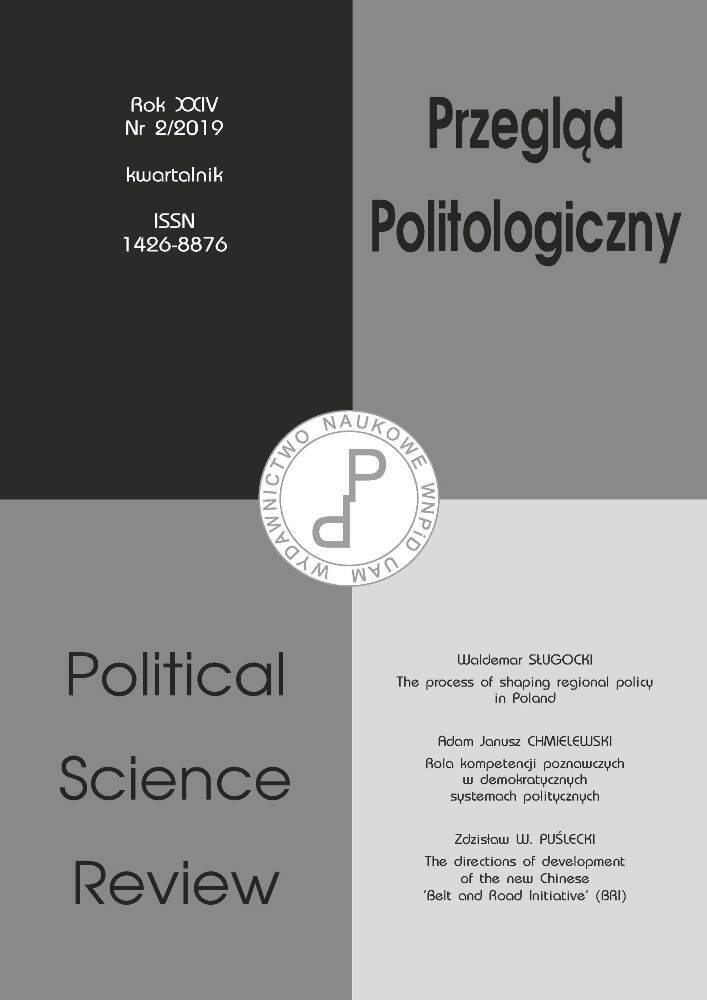Abstract
The post-Soviet region is inhabited by communities using a high number of languages and dialects. This linguistic mosaic has been formed for millennia. Very often it turned out to be a factor seriously influencing the development of the geopolitical situation in this part of the globe. The post-Soviet region remains a space where language issues are still challenging and very sensitive. In large measure, traditional problems became more complicated during the period of the regional expansion of the Russian language in the nineteenth and twentieth centuries. Nowadays, states in the region try to create more or less autonomous language policies, sometimes calculated on relieving and sometimes on fueling socio-political conflicts. Language policies often turn out to be the instrument by which players in the region are trying to diminish or increase the gap in mutual relations. Additionally, political solutions applied to language issues often serve as a kind of argument in the axiological rivalry between communities living in the area of the former USSR. The paper aims to analyze some selected aspects of these policies. It also tries to characterize in general their rhetorical qualities and argumentative potential.
References
Aristot. Rh. 1.2.1. Aristotle in 23 Volumes, vol. 22, translated by J. H. Freese, Aristotle, Cambridge–London, Harvard University Press, William Heinemann Ltd. 1926, The Annenberg CPB/Project, http://www.perseus.tufts.edu/hopper/text?doc=Perseus%3Atext%3A1999.01.0060%3Abook%3D1%3Achapter%3D2%3Asection%3D1.
Burke K. (1969), Rhetoric of Motives, University of California Press, Berkeley–Los Angeles–London.
Cardinal L., Sonntag S. K. (2015), State Traditions and Language Regimes. Conceptualizing Language Policy Choices, in: State Traditions and Language Regimes, eds. L. Cardinal, S. K. Sonntag, McGill-Queen’s Press, Montreal & Kingston, London–Ithaca.
Cywiński B. (2013), Szańce kultur. Szkice z dziejów narodów Europy Wschodniej, Centrum Europejskie Natolin, Warszawa.
Goethe J. W. (1907), Maximen und Reflexionen. Aphorismen und Aufzeichnungen, Nach den Handschriften des Goethe- und Schiller-Archivs hg. von Max Hecker, Verlag der Goethe-Gesellschaft,
Weimar. Aus Kunst und Altertum, 3. Bandes 1. Heft, 1821.
Isaacs R., Polese A. (eds.) (2016), Nation-Building and Identity in the Post-Soviet Space: New Tools and Approaches, Routledge, London–New York.
Kupidura R. (2015), Demokracja a język. Dyskusja wokół „Ustawy językowej” na Ukrainie, in: Dyskurs postkolonialny we współczesnej literaturze i kulturze Europy Środkowo-Wschodniej. Polska, Ukraina, Węgry, Słowacja, ed. B. Bakuła, Poznań.
Lausberg H. (1998), Handbook of Literary Rhetoric A Foundation for Literary Study, Foreword by G. A. Kennedy, Translated by M. T. Bliss, A. Jansen, D. E. Orton, Edited by D. E. Orton, R. D. Anderson, Brill–Leiden–Boston–Köln.
Lichański J. Z. (2007), Retoryka: Historia – Teoria – Praktyka, vols. 1–2, Warszawa.
Perelman Ch. (2002), Imperium retoryki. Retoryka i argumentacja, PWN, Warszawa.
Riabczuk M. (2015), Polityka językowa na Ukrainie: minione debaty i przyszłe rozwiązania, in: Dyskurs postkolonialny we współczesnej literaturze i kulturze Europy Środkowo-Wschodniej. Polska, Ukraina, Węgry, Słowacja, ed. B. Bakuła, Poznań.
Shiffman H. F. (1998), Linguistic Culture and Language Policy, Routledge, London–New York.
Vasilevich H. (2015), Linguistic Rights in Belarus: Law and Practice, in: Integration and Exclusion. Linguistic Rights of National Minorities in Europe, ed. E. Kuzborska, Artprint, Vilnius.
Volkmann R. (1995), Wprowadzenie do retoryki Greków i Rzymian, Wydawnictwo DiG, Warszawa.
Worthington I. (ed.) (2010), A Companion to Greek Rhetoric, Malden–Oxford–Chichester.
Ziomek J. (1990), Retoryka opisowa, Ossolineum, Wrocław–Warszawa–Kraków.
Марусик T., Державна мовна політика в Україні останнього десятиліття, http://universum.lviv.ua/journal/2015/2/marusyk.htm.
Отношение к статусу русского языка в Украине (пресс-релиз подготовлен Дарыной Пирого-вой)//КМИС, 10.04.2015.
Празаускас A. (1992), СНГ как постколониальное пространство, “Независимая газета”.
Совместное заседание Совета по межнациональным отношениям и Совета по русскому языку,19 мая 2015 года, http://kremlin.ru/events/president/news/49491.

